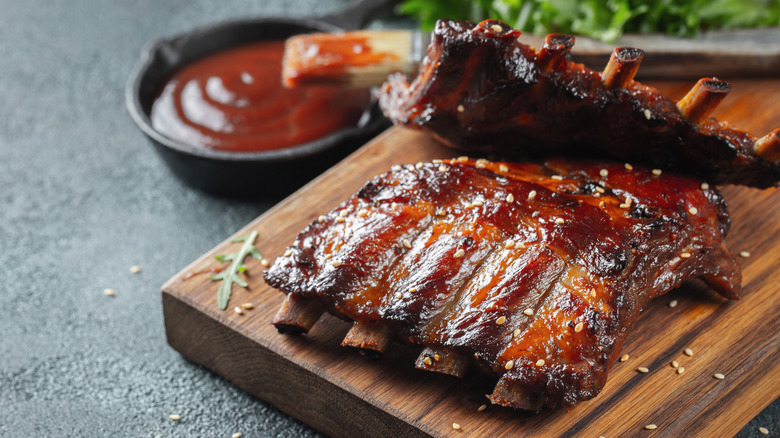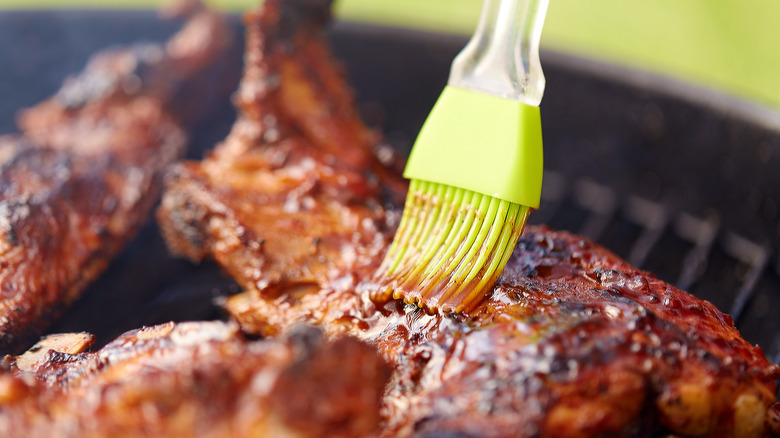You May Want To Think Twice Before Buying BBQ Sauce. Here's Why
Summer is almost here and that's traditionally time to fire up the grill and barbecue some delicious chicken, ribs, or vegetables.
While there are many styles of barbecue — and just as many ways to make them — most people rely on rubs, marinades, or barbecue sauce to flavor their meats.
Many regions throughout the United States fancy their own barbecue sauces. In Memphis, molasses takes center stage in barbecue sauce, while in Kansas City, tomatoes are king. If you're in Texas, you're likely to have a barbecue sauce filled with local peppers, while pit masters in the Carolinas add mustard for a tangy sauce.
Some people prefer to make their own recipes, with many handed down from generation to generation, and many other people use store-bought barbecue sauce to save time. Bottled sauces can cut some steps in the barbecue process, but before you purchase that bottle from the local grocery store, take a look at the ingredients and nutritional information on the label.
Sugar and sodium in your sauce
Many store-bought barbecue sauces are filled with ingredients that aren't good for you.
Prevention lists barbecue sauce as one of the 40 worst foods for your heart. The health magazine says that just a few tablespoons of your average store-bought barbecue sauce has about 310 milligrams of sodium. As a reference, the United States Food & Drug Administration (FDA) suggests that the average person ingest less than 2,300 milligrams (mg) of sodium per day. Liberally douse that chicken with BBQ sauce, and you could easily add hundreds of milligrams of sodium to just one piece of meat.
Barbecue sauce from the bottle also has added sugar in the form of corn syrup. You might be surprised to find that the first ingredient listed on a bottle of Kraft Original Barbecue Sauce is high fructose corn syrup. Sweet Baby Ray's barbecue sauce combines high fructose corn syrup, molasses, regular corn syrup, white sugar, and pineapple juice concentrate for sweetness.
A healthy alternative
Luckily, there is a solution: seek out healthier options. Prevention lists several bottled barbecue sauces that are better alternatives. Tessemae's sauce is vegan, gluten-free, dairy-free, and paleo friendly. The sauce gets its sweetness from pureed dates instead of refined sugar. The company also makes healthier ketchups, mustards, and other condiments, if you're looking to reduce your sugar and sodium intake. Another bottled sauce option is Haven's Kitchen, which uses dates and tamarind for a sweet and tangy flavor and tamari, a gluten-free soy sauce, instead of salt.
Of course, you can also make your own barbecue sauce from scratch. Food.com offers a low sodium barbecue sauce that's easy to prepare. Home cooks and pit masters can experiment with different flavors, adding low sodium soy sauce, tangy mustards, agave, and pureed tomatoes to make their own custom BBQ sauce that will not only have less sugar and sodium, but may just turn into a family recipe that will be handed down for generations.


